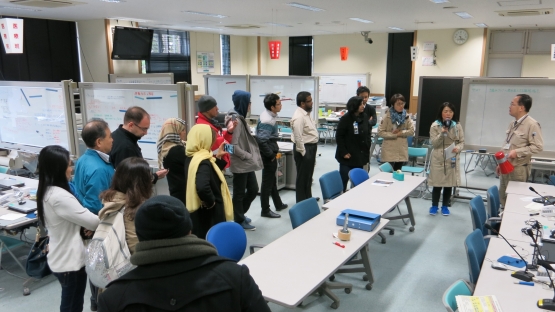The IAEA has been conducting a series of workshops to train Member States in the implementation of new safety requirements for preparing and responding to nuclear or radiological emergencies, since their adoption in 2015. Last week in Japan, the Agency brought together responders from the Asia and Pacific Region to be trained on this new publication entitled Preparedness and Response for a Nuclear or Radiological Emergency (IAEA Safety Standards Series No. GSR Part 7).
22 participants from 18 countries attended the workshop in the IAEA Response and Assistance Network Capacity Building Centre (RANET CBC) in Fukushima Prefecture. The RANET CBC, Fukushima, was designated in May 2013 to further enhance Member States’ emergency preparedness and response (EPR) capacities. The RANET CBC regularly hosts training activities in the field of EPR for local, national and international participants as part of work to enhance capacity in this field.
Holding the workshop in the Capacity Building Centre gives participants access to world class training and expert lectures. Through proximity to the area affected by the 2011 accident in the Fukushima Daiichi Nuclear Power Plant, participants will also have a chance to learn about ongoing recovery efforts in these areas during a field visit.
“Having the opportunity to visit the affected area and observe remediation efforts gave us a very real perspective of the benefits of the training we are receiving this week”, said Marcus Grzechnik a participant of the workshop from Australia. “As well as aspects of EPR described in GSR Part 7, the workshop includes steps to take when preparing to resume normal social and economic activity after an emergency, including aspects related to waste management. During the visit, we were able to see first-hand how these steps are being carried out in Fukushima”.
The workshop followed a recent workshop which was held for Latin American and Caribbean states. With each workshop, the IAEA continues to build the numbers of global emergency responders who are trained in the new safety requirements and who are aware of their impact on existing national EPR frameworks. Lectures and working sessions during the workshop are focussed on guaranteeing that participants can return to their home countries to work with their national authorities in building and maintaining sustainable infrastructure in EPR.





